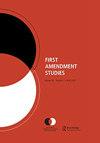Commercial Free Speech Trumps the Politics of Food Labeling: The Legacy of rbST-Free Milk Mandate and Prohibition Cases for Genetic Engineering Disclosure Laws
Q2 Social Sciences
引用次数: 0
Abstract
Commercial speech rights have expanded under federal court decisions dating back to the 1970s. This paper examines application of commercial free speech precedents to two contemporary dairy labeling cases, where states required or prevented labeling of products derived from cows treated with genetically-modified hormones. Decisions in both cases strengthened commercial speech freedom regarding food products and processes and limited state regulatory power, though the outcomes for anti-genetic engineering interest groups were divergent. The courts struck down Vermont’s labeling mandate as unconstitutional compulsory speech and found consumer “right to know” an inadequate state interest. In striking down Ohio’s labeling prohibition, the courts protected voluntary speech to label dairy products as “rbST-free” as long as labels were not false or misleading. The author projects the likely negative impact of these court rulings on the constitutionality of genetically-modified food labeling mandates proposed in many states and considers future directions of genetically-engineered food labeling regulation in competitive and politically-contested environments.商业言论自由胜过食品标签政治:无rbst牛奶法令的遗产和基因工程披露法的禁止案例
根据上世纪70年代联邦法院的判决,商业言论权得到了扩展。本文考察了商业言论自由先例在两个当代乳制品标签案例中的应用,在这些案例中,各州要求或阻止对使用转基因激素治疗的奶牛生产的产品进行标签。这两起案件的判决都加强了有关食品和加工的商业言论自由,限制了国家监管权力,尽管反基因工程利益集团的结果各不相同。法院驳回了佛蒙特州的标签规定,认为这是违宪的强制性言论,并认定消费者的“知情权”不足以构成州政府的利益。在推翻俄亥俄州的标签禁令时,法院保护将乳制品标记为“不含rbst”的自愿言论,只要标签不虚假或具有误导性。作者预测了这些法院裁决对许多州提出的转基因食品标签授权的合宪性可能产生的负面影响,并考虑了在竞争和政治竞争环境中转基因食品标签监管的未来方向。
本文章由计算机程序翻译,如有差异,请以英文原文为准。
求助全文
约1分钟内获得全文
求助全文
来源期刊

First Amendment Studies
Social Sciences-Law
自引率
0.00%
发文量
0
期刊介绍:
First Amendment Studies publishes original scholarship on all aspects of free speech and embraces the full range of critical, historical, empirical, and descriptive methodologies. First Amendment Studies welcomes scholarship addressing areas including but not limited to: • doctrinal analysis of international and national free speech law and legislation • rhetorical analysis of cases and judicial rhetoric • theoretical and cultural issues related to free speech • the role of free speech in a wide variety of contexts (e.g., organizations, popular culture, traditional and new media).
 求助内容:
求助内容: 应助结果提醒方式:
应助结果提醒方式:


